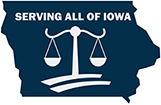- Rock Rapids Truck Accident Injury Attorneys
- Phone: 641-792-3595
- Directions
In the broad realm of highways, trucking accidents can cause significant disruption, often resulting in serious injuries for those affected. In such chaotic times, trucking injury lawyers serve as unwavering advocates, offering support and direction to survivors. These legal specialists excel in navigating the complex terrain of trucking laws and regulations.
Systems That Prove Fault in Iowa Car Accidents
Iowa, like many states, follows specific "rules of the road" detailed in Iowa Code Chapter 321 - Motor Vehicles and Law of the Road. These laws dictate who has the duty to yield at an intersection, responsibilities in various traffic situations, and much more. Proving fault in Iowa car accidents often involves applying these rules. It's important to understand that Iowa is a comparative fault state. This means that the fault of each driver involved in an accident is compared, and their compensation is adjusted accordingly. If a driver is found to be 51% or more at fault, they cannot recover damages. If they are 50% or less at fault, their recoverable damages are reduced by their percentage of fault. For instance, if a driver sustains $100,000 in damages but is found to be 25% at fault, they can only recover $75,000.
Common Ways to Prove Fault in Iowa Car Accidents
1. Failure to Stop Within an Assured Distance, Maintain Control, or Follow Too Closely
Rear-end collisions often involve violations of laws related to assured clear distance, maintaining control, or following too closely. Specific violations include:
- Assured Clear Distance Ahead: Drivers must not travel at speeds greater than those that allow them to stop within the clear distance ahead.
- Failure to Maintain Control: Drivers must control their vehicles and reduce speed when approaching intersections or crossings.
- Following Too Closely: Drivers must not follow another vehicle more closely than is reasonable, considering the traffic and highway conditions.
2. Failing to Yield
Failing to yield can involve various scenarios, including uncontrolled intersections, vehicles pulling into traffic, and collisions while passing. Key requirements include:
- Meeting and Turning Right: Vehicles meeting on the road must yield by turning right.
- Approaching or Entering Intersections: Vehicles entering an intersection simultaneously must yield to the vehicle on the right.
- Backing Onto a Highway: Drivers must ensure safety when reversing and yield to approaching vehicles.
- Slow Moving Vehicles: Slower vehicles must stay in the right-hand lane or as close to the right-hand edge as possible.
- Driving on the Right Half of the Road: Drivers must stay on the right half except under specific conditions like overtaking or obstructions.
3. Failing to Obey Traffic Control Devices
This involves violations like running red lights or stop signs. Specific regulations include:
- Green Light: Vehicles can proceed but must yield to others already in the intersection.
- Yellow Light: Vehicles should stop if it's safe to do so.
- Red Light: Vehicles must stop but may turn right or left (from a one-way street) if not prohibited by signs, yielding to others.
- Green Arrow: Vehicles can proceed in the indicated direction but must yield to others in the intersection.
4. Making a Left Turn Across Traffic
Drivers turning left must yield to oncoming traffic at the intersection.
When a Delivery Driver Causes a Commercial Truck Accident
According to the Iowa Department of Transportation, delivery trucks are considered commercial vehicles. Accidents involving these vehicles often result in severe injuries. Liability in such cases usually falls on either the driver or the company owning the truck. If the driver is an employee, the company is typically liable under the legal doctrine of respondeat superior. If the driver is an independent contractor, they may be held liable. In some cases, liability may fall on the manufacturer of a defective part, the shipper, or the party responsible for loading the cargo.
Proving Liability
To prove liability, one must demonstrate the negligence of the at-fault party, which may include:
- Failing to perform vehicle inspections or maintenance
- Improperly loading cargo
- Driving while impaired
- Speeding or aggressive driving
- Failing to adhere to traffic laws
Should I Get a Car Accident Lawyer?
Considering hiring a car accident lawyer for an Iowa claim is crucial. Qualified lawyers typically:
- Charge no upfront fees, operating on a contingency fee basis.
- Only get paid if they win the case, with fees ranging from 30% for settlements to 40% for appeals.
- Handle all interactions with insurance companies and gather necessary medical records and bills.
- Keep clients updated on case progress.
If a lawyer's practices deviate from these norms, it may be a red flag. For instance, firms that accept every case or require clients to obtain their own medical records may not be fully invested in the client's case.
Contacting Walker, Billingsley & Bair
At Walker, Billingsley & Bair, our team is committed to ensuring you receive the compensation you deserve. We handle all injury cases on a contingency fee basis and manage all necessary documentation and communications.
Walker, Billingsley & Bair is prepared to act fast to defend your rights after a truck accident in Iowa. Contact our office at 641-792-3595 to speak with an attorney.

